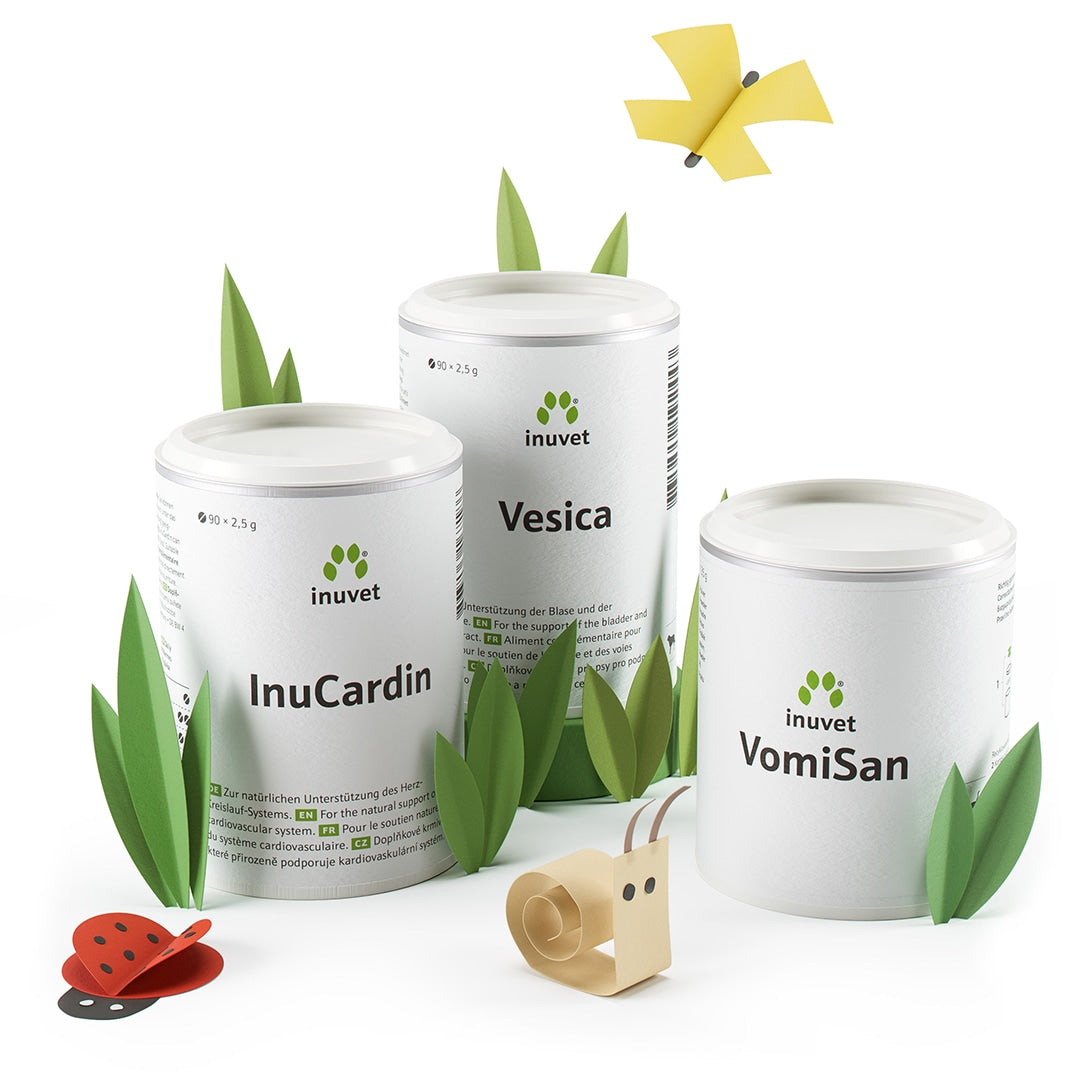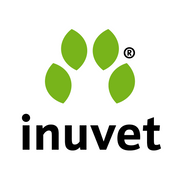
FloraComplex³ powder
Complementary feed for dogs
- Supports the regeneration of the intestinal flora
- Contains three bacterial strains of probiotic cultures
- Also suitable for animals suffering from allergies and diabetics
Are you a vet? Then you can register and order directly. For pet owners: Inuvet products are only available at veterinary practices, along with expert advice from the practice team.
Already registered? You can log in here.
Inulin (Prebiotic) Inulin belongs to the category of prebiotics, specifically oligosaccharides that cannot be digested by the body's own enzymes, thus acting as a fermentable substrate for the bacteria in the intestinal flora. Inulin promotes the growth of beneficial intestinal bacteria, such as Enterococcus faecium, while not supporting pathogenic germs. Therefore, inulin is considered to have a positive effect on the immune system. When metabolized by intestinal bacteria like Enterococcus faecium, organic acids are released, which stabilize the intestinal microbiota. Research on puppies has also shown that adding inulin to their food reduces salmonella colonization.
Enterococcus faecium (Probiotic bacterial cultures) Enterococcus faecium cultures help naturally build up the intestinal flora. They settle in the intestine and support the regulation of intestinal peristalsis. These cultures also help reduce the presence of pathogenic bacteria in the gut. They compete with these bacteria for receptors on the intestinal epithelium and alter the luminal pH, influencing the binding ability of pathogenic bacteria. Particularly in a weakened intestine, this can displace harmful microorganisms in favor of the natural intestinal flora.
Lactobacillus acidophilus (Probiotic bacterial cultures) Lactobacillus acidophilus is a facultative anaerobic, gram-positive rod-shaped bacterium. It is one of the most well-researched probiotics for the health of dogs and cats. This bacterium produces lactic acid, improves stool consistency, and supports the maintenance of a healthy intestinal flora. Lactobacillus acidophilus also modulates local immune defense and promotes a healthy intestinal epithelium.
Bacillus velezensis (Probiotic bacterial cultures) This strain of bacteria creates a favorable environment for beneficial gut bacteria by consuming oxygen and producing certain enzymes. Bacillus velezensis spores survive the low pH in the stomach and multiply in the intestines. Supplementing the diet with Bacillus velezensis reduces stool ammonia content and pH, improves stool consistency, and supports digestion. Bacillus velezensis also helps give a shiny, beautiful coat.
Inulin (from chicory, Jerusalem artichoke, artichoke or agave), sodium chloride
Crude protein (3.0%), crude ash (6.8%), crude fibre (1.1%), crude fat (< 0.3%)
| Dogs | Number |
| <5kg | 1 |
| 5–10kg | 2 |
| +10kg | +1 |
| 1x a day |
Intestinal flora stabilizers: Enterococcus faecium DSM 10663/NCIMB 10415 1x10^12 kbE, Lactobacillus acidophilus CECT 4529 7x10^11 kbE, Bacillus velezensis DSM 15544 1x10^12 kbE
Keep out of reach of animals. Gluten-free. Vegan. Sugar-free. Made in Germany.
Do not store above 30°C. After opening, store in a cool, dry place and use within 6 months.
Dogs
Only in your practice
Do you spend a lot of time and energy advising your customers and recommending the right products? Are you also happy when the treatment works well, but are surprised when pet owners don't order recommended products from you, but instead order them online? Why don't you google it? You can find everything on the internet - except Inuvet products for sale. Sales are handled exclusively by your practice.

Mission: Green practice
Paper packaging
A current estimate is that 12 million tons of plastic waste ends up in the ocean every year. That has to change: With new Inuvet packaging, you as veterinarians get an ecological alternative for your patient owners.


